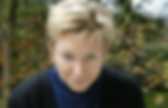

Christopher Alexander | Crossbow Labs. Growing Code. Christopher Alexander's Theory of Centers | Growing Code. Crossbow Labs. The New Game: Staying Agile | Growing Code. Unnamed. Théorie des centres Christopher Alexander. Urbanisme et cognition. 1L’urbanisme n’est pas un champ du savoir qui pourrait prétendre à une quelconque unité et donc au statut de discipline, mais au contraire un vaste ensemble hétérogène de pratiques, de savoir-faire et de savoirs qui portent sur le même objet: la ville. Parler d’approche cognitiviste en ce qui concerne l’urbanisme revient donc à rechercher parmi les divers écrits théoriques portant sur la ville, ceux qui font explicitement référence à certains traits caractéristiques de l’approche cognitiviste des sciences sociales. 2Il est difficile d’isoler dans l’histoire de l’urbanisme ce que l’on pourrait appeler un courant cognitif.
Néanmoins, au sein de l’océan des écrits qui s’inscrivent dans ce champ, émergent deux auteurs qui ont tenté de formuler ce qui pourrait être qualifié d’«urbanisme cognitif». Kevin Lynch et Christopher Alexander, architectes de formation mais quelque peu hétérodoxes, furent enseignants toute leur vie. 1. 2. Vers une scientifisation du discours esthétique des architectes. Théorie des centres Christopher Alexander. 70c.pdf (Objet application/pdf) Théorie des centres Christopher Alexander. Persee.fr - Flux, Année 1997, Volume 13, Numéro 29, pp. 42-47. Théorie des centres Christopher Alexander. Théorie des centres Christopher Alexander. Théorie des centres Christopher Alexander. MATHEMATIQUES. Livre : The Autopoiesis of Architecture: A New Framework for Architecture, Volume 1 / SCHUMACHER PATRIK.
-New York Chichester Brisbane Toronto Singapore : John Wiley & Sons, 2010. - 478 p. DVD : Le paramètre humain/social ? / DECQ ODILE ; PICON ANTOINE ; MOREL PHILIPPE ; KWINTER SANFORD ; YANEVA ALBENA ; DENDRA DANIEL. -Paris : ESA Productions, 2011 Mémoire prof. Livre : African Fractals : Modern computing and indigenous design / EGLASH RON. Livre : Cybernetics : or Control and Communication in the Animal and the Machine / WIENER NORBERT. Mémoire de diplôme : Generative order / SHEN Ruo Fan. . - non pag. Livre : Introduction à la théorie des graphes orientés : modèles structuraux / HARARY FRANK ; NORMAN ROBERT Z. ; CARTWRIGHT DORWIN. Numéro de Périodique : Emergence : Morphogenetic Design Strategies / ARCHITECTURAL DESIGN REVUE. Livre : Cities and complexity : understanding cities with cellular automata, agent-based models, and fractals / BATTY MICHAEL.
Théorie des centres Christopher Alexander. Théorie des centres Christopher Alexander. A theory of rugs - Alexander's theory 'A foreshadowing of 21st c. Fig. 1: Cover of Alexander's rug book: brown letters on transparent plastic dust jacket over patterned cloth binding. Weird, more pleasant to handle without plastic dust jacket. Note: Italics in quotations are not my italics, but original italics in the text. Christopher Alexander's much frowned-upon rug book deserves a chapter on its own. I am not interested in judging whether its ideas are right or wrong—I am not interested in attacking Alexander's theory or argue about fine points. What counts for me is whether the system of ideas exposed in this book proves applicable and fruitful in analysing and appreciating rugs.
The book presents an approach to rugs which is decidedly a-historic. Technicalities count only inasmuch as Alexander emphasises the knot—roughly 1/8 inch x 1/8 inch—as the smallest visual design element. Fig. 2: Intense colour in the Yellow and blue carpet with griffin and archaic border. The premises Let me first list a few central tenets of Alexaner's carpet book: Centers. New York et le Cinéma.